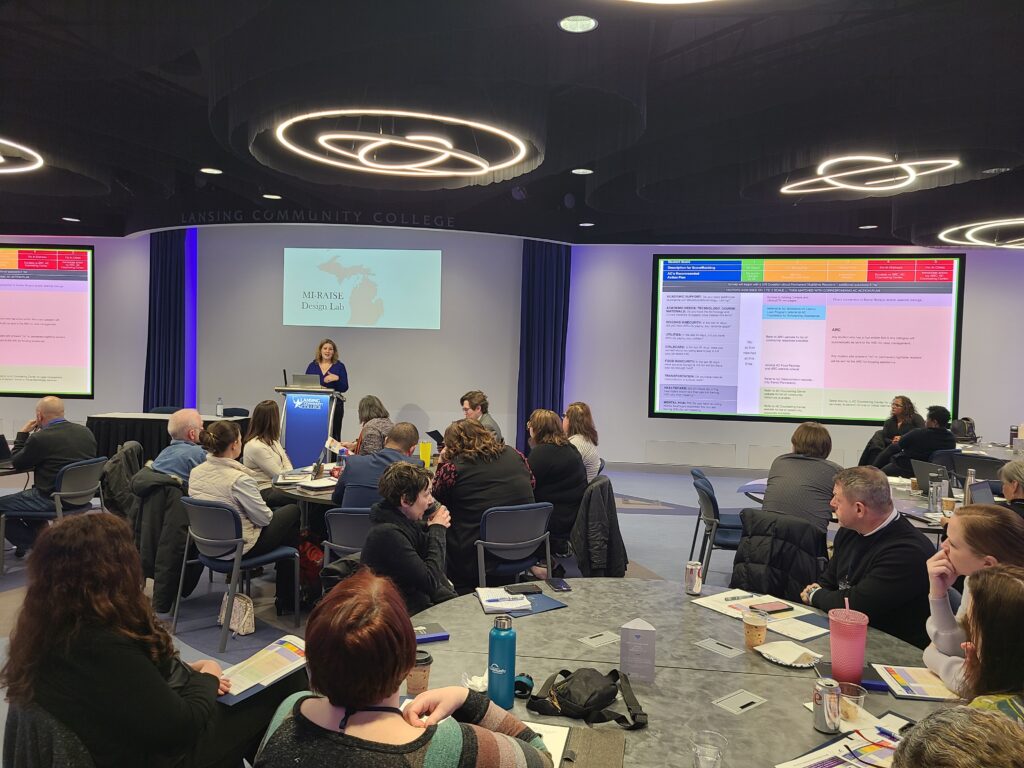Before investing in new technology to solve all your HR problems, first make sure you have an HR problem to solve.
That may sound like common sense, but Michelle Fontana, has seen too many examples of HR leaders “getting distracted by handfuls of glitter” – including being sold systems to perform functions that are already covered by existing systems.
Fontana, a Managing Director for EY, where she focuses on HR Technology and Transformation, Shared Services, and Strategy, spoke at the final session of our inaugural Talent Solutions Series, where we examined the topic of HR Technology Trends & Efficiencies.
Emerging technology, including artificial intelligence, has the potential to greatly improve efficiency and effectiveness of HR teams, Fontana said. That’s good news as employers face a labor market with an average of seven applicants for every 10 job openings.
However, Fontana said, the goal of technology is not to replace human teams. Rather, the idea is to help human teams perform better. By easing the burden of administrative tasks, technology and automation can allow HR leaders to focus more on meaningful, complex work, such as:
- Predictive analytics
- DEI training
- Improving employee experience and engagement
- Reducing cycle times
“Focus on what exactly are your goals in the organization, and what are your goals as HR leaders,” said Fontana, who emphasized the importance of cross-functional alignment. “Become best friends with your IT person. Really understand what you already have inside your four walls.”
Staying human
Following her keynote address, Fontana joined a panel discussion facilitated by Joe Dettmann, Ph.D., principal and leader in People Advisory Services for EY, with local panelists:
- Jan Harrington-Davis, senior vice president, Talent Attraction, Corewell Health
- Lindsey Leonardis, senior human resources consultant, HR Solutions Group of West Michigan
- Shawn O’Farrell, area lead, Manufacturing Technical Services and Automation, DISHER
The panelists discussed the importance of using technology to improve the experience of the human element of their work, including by:
- Simplifying the application process
- Improving workflows and delegation
- Using data to manage risk
- Enhancing compliance
- Freeing up leaders to spend more time with employees
- Paying attention to how automation affects culture
All the panelists agreed on the importance of keeping the human implications in mind with any technology adoption. Dettmann noted a recent study conducted by EY with Oxford University that found a transformation at an organization is much more likely to succeed if they put people on an equal plane with technology.
As Fontana noted, “You need the people; the technology is just the enabler.”
More insights ahead
This was the final of our five Talent Solutions Series events that focused on the strategies in our popular Talent Solutions Playbook (PDF). However, we have several opportunities ahead to stay informed about talent trends and to engage with peers and experts on these important topics:
The first gathering of our new HR Council is planned for 3:30-5 PM Thursday, April 27th. This is a community of practice for the region’s top-level human resources and diversity, equity, and inclusion leaders. Be sure to establish your membership by April 23 to get all the details about this Inaugural Event.
And save the date for 8 a.m. Tuesday June 6 for the next iteration of the Talent Solutions Series, with a discussion about Cultivating Inclusive Team Culture. This is an event at GVSU’s Eberhard Center in downtown Grand Rapids is intended for all types of leadership, including front-line managers, who are critical to nurturing an inclusive culture. Stay tuned for more details!


